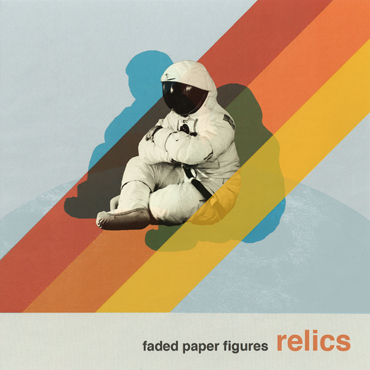 “Strangers looking fine,
“Strangers looking fine,
like nothing’s on the line,
but deep, deep down inside
we’d all want to resign
if nothing’s on the line,
we wouldn’t last the night
if nothing’s on the line.”
– Faded Paper Figures, “On The Line”
Faded Paper Figures (FPF), an indie trio comprised of Heather, R. John Williams, and Kael Alden, met in California and then went their separate ways. But somehow remained together as a band; they wrote, composed, recorded, and traded tracks at a distance while pursuing arduous career paths in medicine, academia, and professional music production. Their most recent album, Relics, was recommended here in the Voice. Recently band member (and Yale prof) R. John Williams, took the time to answer Wanda Waterman’s questions about their backgrounds, motivations, and secrets of success.
How did you all manage to build a successful band and recording career while working toward such arduous career goals?
FPF: The band didn’t start out as a “career,” and none of us were thinking that it would become one, but we feel very lucky that this thing we all love (and thought would be just a “side” thing) has gone on to become such a big part of our lives. Really the only way we’ve been able to keep our day jobs has been to not even try to do all the things expected of a typical indie band. So we rarely tour, and when we do, they’re short, two-week excursions. It’s really the only way we can keep things going, but we feel super fortunate that It’s worked out so far.
For you, for example, what was a typical day like while you were both studying and/or working and creating songs with FPF?
FPF: A “typical” day generally means that John is on the east coast (teaching, writing, etc.) and Kael and Heather are in Los Angeles (doing music production and being a doctor, respectively), and then, sometime after dark, we’ll turn our attention to the songs we’re working on. Then things can sometimes go until 2:00 a.m. or later, but that all depends on where we are in the process of writing and recording. Eventually, when we need to really accelerate the songs or production, John will fly out to LA for a week and we’ll spend the whole time just working on band stuff.
Describe your musical background. What role did music play in your childhood?
FPF: Music was an integral part of all of our childhoods. We all have early memories of falling in love with music.
What or who in your musical training had the most?and best?influence on you, as a musician, a composer, and a human being?
FPF: It’s of course different for each member of the band (and there were figures in all of our lives growing up who were important), but if we were to answer collectively, we’d have to say that it was those first fans we encountered when we began putting music online back in 2007. We got feedback and encouragement from people all over the world (at the time it was all on myspace or http://garageband.com), and this pushed us to work harder to improve nearly every aspect of our songs.
What was the most mesmerizing musical experience of your life?
FPF: As a band, perhaps our most “mesmerizing” moment (or moments) happened during our last tour when, every once in a while, things would really “click” and we’d be playing at our best and really connecting with the audiences. Of course, it didn’t happen at every moment in every show, and there are always times when it seems like everything that can go wrong on stage inevitably does, but That’s all punctuated by moments of mesmerizing magic, when everything just seems to be working perfectly.
(to be continued)
Wanda also writes the blog The Mindful Bard:The Care and Feeding of the Creative Self.


